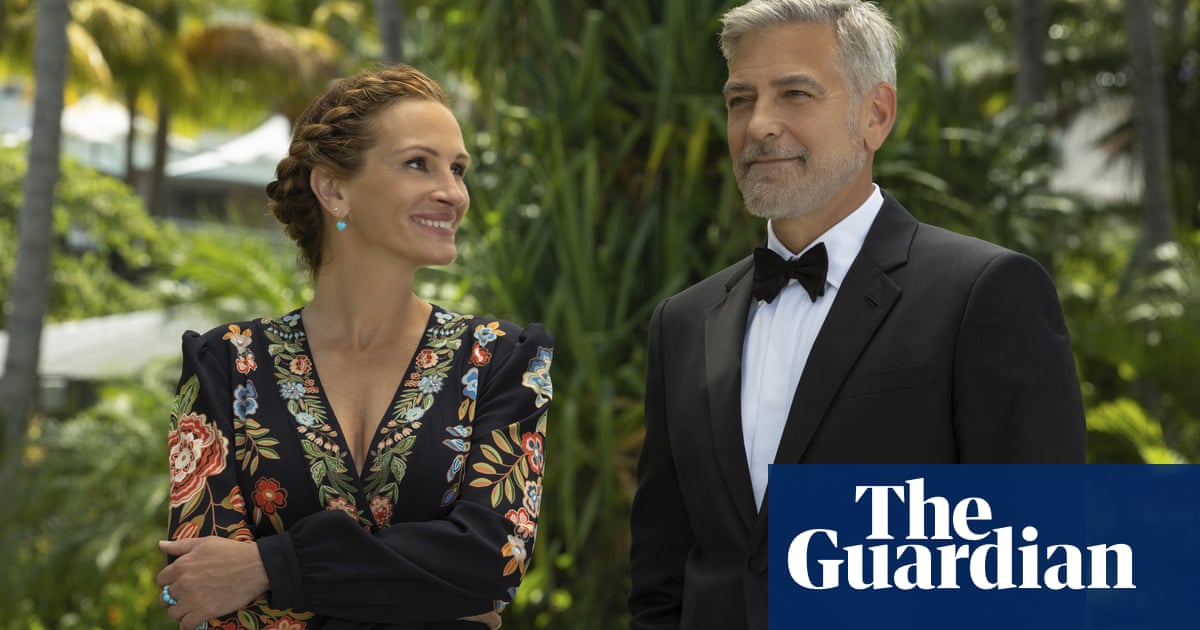
he Golden Girls returns to terrestrial TV today, for the first time in forever. Does terrestrial still mean anything? Does anyone make an appointment with the TV schedule any more? Does Channel 5 even count as terrestrial, or is it a mysterious third space, between the respectable status of the old school and the Wild West of the new?
Perhaps only the over-40s will notice, and maybe that’s just as well, because this is nostalgia of the trippiest kind. Here I am, watching a cast whose central comic conceit was “what are all these women doing on screen when they’re so old?”, which I remember from when I was young enough that there was no functional difference between a 55-year-old and her mother, and I am now around the same age as some of the characters in the show were pretending to be (45).
The show first aired in 1985. Thirtysomething was only two years behind it, so the idea was certainty emerging that sitcoms didn’t need a USP, they could just be people, going about their business, getting into scrapes. Yet, in the Cheers model, your classic sitcom needed a precinct – something more distinctive and enclosed than “life” – and some oddballs, to create some structure like a mobile over a cot, for all the pretty jokes to hang off. The dating lives, trials and histories of four women wouldn’t have cut it (not until Sex and the City). The hilarity was that they were far too old to talk about sex, and yet that’s pretty much all they did.
The scene was an affluent Miami flatshare, a life filled with charity balls and self-serving good works (that portrait of the wealthy, endlessly congregating for unknown charities, is a distinctively American artefact. You can see its spine running through to Curb Your Enthusiasm).
Nominally, the engine of the house was its owner, Blanche Devereaux, played by Rue McClanahan. Everyone on the production talks about her as a Blanche Dubois character, as she is from the south and has a wealthy background. She is nothing at all like Blanche DuBois. Sometimes I think Tennessee Williams is to American culture what the classics are to Etonians, they just blah the names and the lines, and have no idea what actually happened.
Devereaux is not faded at all, not delusional, not a husk of instrumentalised femininity, tragically destined to be used by men who find in her something to hate more than they hate themselves. She is your classic good-time-girl: every third joke is about her life lived in the fast lane (“I haven’t disappointed this many men since my daddy dismantled the treehouse”); more or less every plot line gets its twist from her having previously shagged one of the noises-off. She is the one pretending to be 45 (the real main character, Dorothy Zbornak, played by Bea Arthur, is 55 in season one, and we assume the others are the same).
You can trace this tradition from the Wife of Bath to Samantha in SATC – the promiscuous woman who is old enough to live it without consequences; no STDs, no biological clock, no looking for Mr Right. Culture likes to imagine the post-menopausal woman defanged; her fertility was her venom, and without it, all her concerns are comic. Yet when McClanahan turned that cliche into a character, it was like a shot of HRT. You weren’t laughing at her or even with her; she was laughing at you.
The show’s real star, though, is Dorothy: straight woman and joke-butt. How do you build a character who can weather the mockery of all the others, without feeling sorry for her? By making her pompous enough, a kind of female Frasier. But that’s like saying, “let’s build a female Henry VIII to explain all these divorces”. Arthur made it work, but in the process built something really quite idiosyncratic, the heroine who was neither pleaser nor what Stockard Channing called “the piñata part” (the classic role for the older woman – villain enough that everyone would enjoy hitting her with a stick, then all the toys poured out). Daffy Rose (Betty White) and caustic Sophia (Estelle Getty) were like the album’s B-sides: occasionally they would seem like the true soul of the show, before Blanche and Dorothy let fly some huge melody.
It didn’t do the show any harm that these are four great comic talents of a generation (Getty, playing Sophia, the mother, was actually a year younger than Arthur, playing her daughter). You could say the studio decision was hard-headed rather than mould-breaking – what a huge amount of capital would have been lost, had they all been put out to pasture. But what made it so delicious was the beady sagacity of the cast.
The structure of the classic sitcom is schmaltz. From a saccharine opening jingle – “If you threw a party / Invited everyone you knew / You would see / The biggest gift would be from me” (see also Friends, “I’ll be there for you / Cause you’re there for me too”) – to the homily on friendship reliably delivered at the end of most episodes, and with bells on at the end of the series (see Big Bang Theory), it is very often a little too much, and risks the whole enterprise. The Golden Girls undercut it with their eyebrows. They couldn’t help themselves.
• The Golden Girls is on Channel 5, weekdays, 12.45pm












